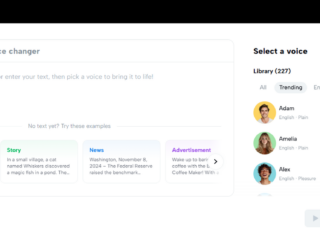
It’s hard to ignore that Web3 is reshaping the entertainment landscape, but it’s a change that the entire industry has been quick to adopt. With this new era of decentralization, transparency, and user empowerment, there has been a paradigm shift that has transformed how the everyday consumer creates, consumes, and participates in entertainment across various mediums.
From the early creation of an interesting NFT ecosystem online that gives power to consumers to cryptocurrency-backed transactions that have made entertainment easier to access than ever before, now is the time to buckle up and enjoy a new dawn of entertainment. In this article, we’ll be discussing how the entertainment industry is leading the charge on Web3 adoption, giving examples of how other industries can follow in their footsteps.
The Creation of Tokenized Economies Within Gaming
The gaming industry has consistently remained ahead of the curve when it comes to adopting new technologies, and it has already made significant headway in adopting various pillars of Web3. Using decentralized finance models, many game developers have introduced ways for players to own their in-game assets and create a thriving trading community that revolves around Non-Fungible Tokens (NFTs). In the world of online casino gaming, when a player places a bet with Bitcoin in a crypto casino, not only do they benefit from easier access to payments, but they can also use this money to gain NFT rewards and incentives that grant them access to this online marketplace.
What makes this idea more attractive to players is that Blockchain ensures the scarcity and authenticity of virtual items. Once people know what NFTs are and how they can benefit them within games, they’ll be encouraged to get involved in the hopes of owning valuable assets. Importantly, they also have the confidence that they are participating in a safe and secure marketplace. With this, players can trade assets they earn in a virtual casino, for example, across different games, while earning cryptocurrency for making well-informed bets and taking calculated risks.
Enhanced Entertainment Experiences for Consumers
One of the main parts of the Web3 movement that has garnered a lot of attention is the Metaverse, a virtual space that could be the future of entertainment experiences. Access to the Metaverse is granted through virtual reality (VR), which had previously mainly been used to enhance gaming experiences – but its uses stretch a lot further.
Inside the Metaverse, users encounter unparalleled levels of engagement, customization, and social interaction. They navigate through dynamic virtual environments, participate in live events, own unique digital assets, and can communicate virtually with friends or strangers. Peers. Whether they want to watch a film with a friend who lives on the other side of the world, watch a virtual concert from their favorite music artist, or simply log into an intense poker game with a group of friends – it’s all possible within the Metaverse.
As Meta continues to work on the technology that powers this online world, people will soon be able to enjoy experiences that are totally different from anything they’ve known before.
 A New Way To Create Digital Content
A New Way To Create Digital Content
One of the hallmarks of Web3 in entertainment is the rise of non-fungible tokens (NFTs) in music and visual arts. Musicians and artists can now tokenize their work, providing a direct link between creators and consumers. This decentralized approach enables artists to receive fair compensation for their creations, bypassing traditional intermediaries.
The music industry, in particular, has witnessed a surge in NFT adoption. Artists can tokenize their albums, concert tickets, and even exclusive backstage experiences. This not only generates new revenue streams but also fosters a deeper connection between artists and their fan base.
In the film and gaming industries, blockchain is revolutionizing content creation and distribution. Blockchain-based platforms empower filmmakers and game developers to secure intellectual property rights, ensuring fair compensation and recognition. Additionally, decentralized finance (DeFi) models enable crowdfunding for creative projects, allowing fans to become direct contributors and stakeholders in the success of their favorite films or games.
Challenges That Await The Web3 Revolution
One of the largest problems that lies ahead of the movement towards Web3 is adoption rates. In a recent report by Coinbase, they found a surprising gap between the number of people who were aware of Web3 and the number of people who actively engaged with Web3 technologies. For a lot of people, they don’t have enough knowledge of Web3 to feel confident participating in it.

A substantial segment of the population was quick to embrace cryptocurrencies and eagerly welcomed the emerging technologies of Web3. However, beyond this enthusiastic group, awareness remains notably restricted. In order to gain the momentum needed, Web3 education needs to be focussed on outside of the groups that haven’t already shown interest.













